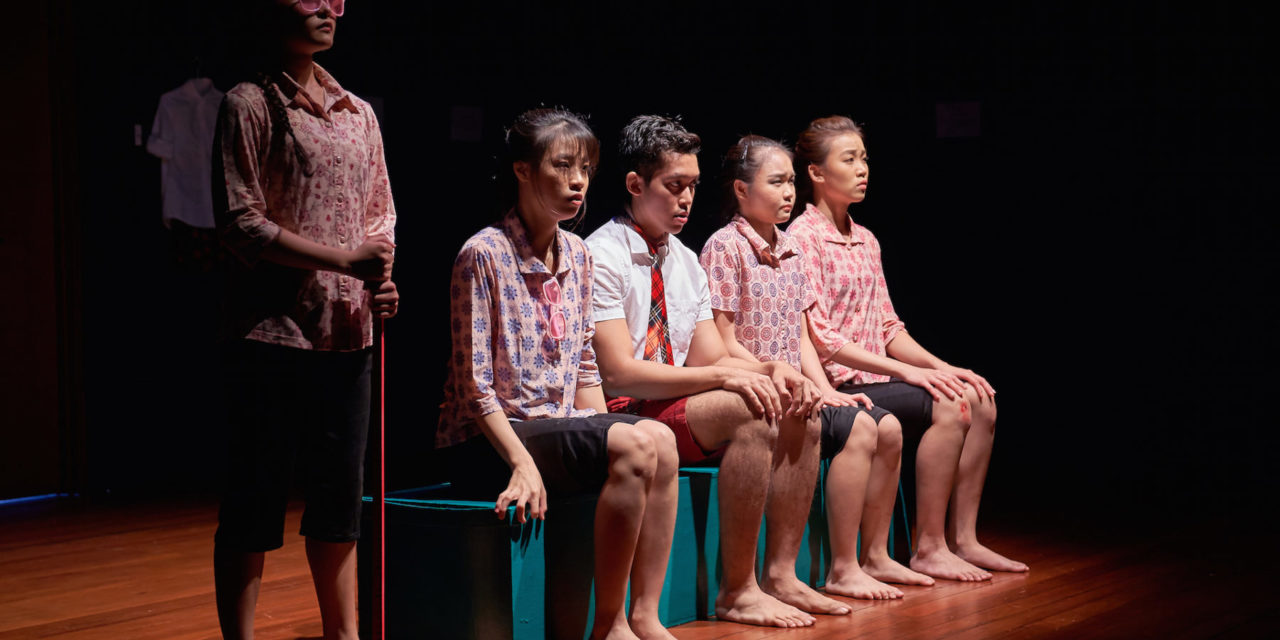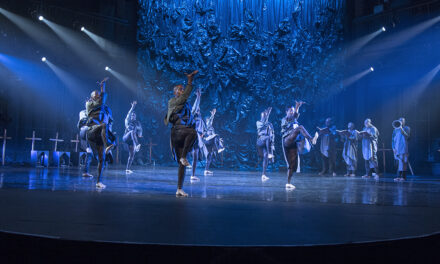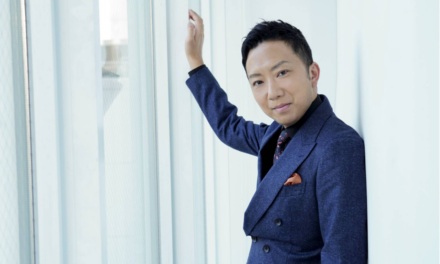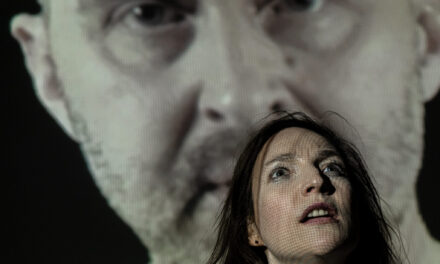At front-of-house before the doors open, a crew member encourages the audience to walk around the theatre space upon entering and warns sternly against moving the seats. Neat rows of seats welcome the audience into the black box space at Centre 42. Random quotes relating to the number 14 are framed and hung along the walls, together with four sets of school uniforms. Four girls, sporting similarly braided hair and pink glasses walk among the audience holding red rods looking akin to discipline mistresses in school.
This is a classroom that begs to question the truth of what schooling is like for students and teachers in Singapore. Acting as both a survey and critique of the public education system, this hour-long play written and directed by Darryl Lim is a fine display of Split Theatre’s style and identity. Fourteen is itself a development of their previous piece, Deaf (2017), that asked if all adults are neglecting Singapore students’ needs and wants.
While Deaf shone its spotlight on the plight of teenagers, Fourteen explores more than just teenage angst and sexual curiosity, adding a critique on teachers and the system. Through disparate scenes, switching perspectives of teenagers, teachers, principal, and parents, the play suggests that despite greater measures implemented towards student development and support, schools are still tied to bureaucratic systems. The teachers are sandwiched between expectations from students, parents and the principal, the pupils have no opportunity to voice out what they really feel, and in one scene, the principal is likened to the flag on the school’s flagpole, its position raised and lowered according to results and expectations. Playwright-director Lim should be in a good position to discuss this, given that he’s an educator himself.
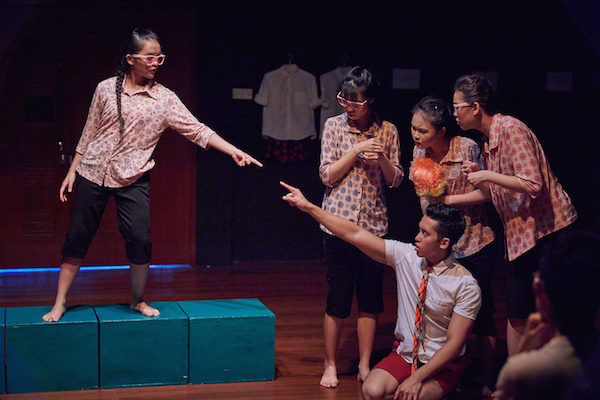
Photo: Adrian Chan
The ensemble of five (Elizabeth Samosir, Fadhil Daud, Mabel Yeo, Ng Xue Ying, and Theresa Chen) is kept busy throughout the show, dancing, jumping, and adopting strange poses as they recite their lines. As a plethora of sound and light cues follow one after another, the five actors take on the fast scene changes with relative ease, switching comfortably between the many characters each of them play. At times, they are confused pubescent students, negotiating their bodily desires. At others, they could be teachers, parents, or the principal, all caught up with disciplining the teens. While the actors are energetic on stage, they lack a sense of camaraderie, and neither do they stand out individually (except for Daud, perhaps being the lone male in the group).
While the pacing of this show is markedly more relaxed as compared to their previous productions, the scene changes are still paced relatively fast, leaving the audience with little time to process the on-goings on stage. The touch-and-go approach leaves audiences yearning for more, as some stories and ideas could be better fleshed out. A lot of the underlying narrative is hinted at. Platitudes such as “this is truth” and “we must secure the existence of all people and the future for all children” are repeated countless times, inevitably becoming white noise. Interestingly, one of the framed quotes reads “Even if you repeat yourself 14 times, it doesn’t mean people understand you better.” Understanding everything that Fourteen tries to bring across then becomes near impossible. Adding to that, the text mixes several languages, accents and speech styles possibly developed in the devising process, resulting in many jokes being buried in the dialogues and getting inevitably lost on the audience.
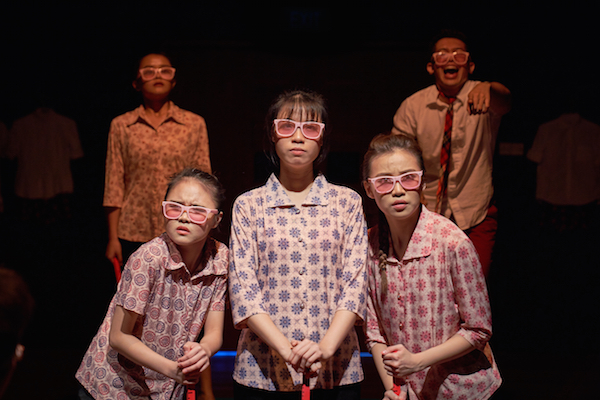
Photo: Adrian Chan
Split Theatre, despite being a young company, has developed a unique style of its own. It focuses on regular trainings and rehearsals, and has developed its own variation of contemporary dance and movement. Choreographer Hong Guofeng, who has worked with the team since their debut public performance Split (2016), returns to guide the actors in their movement work. Dance is now better incorporated in the show as a supporting narrative device, as compared to previous works where it overshadowed the storytelling. For example, in the opening scene, the ensemble breaks into a brief movement piece expressing fear, agony, and frustration, while Daud presents a monologue about his character’s sexual discovery.
The stripped-down set consisting of green painted cubes and a whiteboard allowed the actors to move freely around the stage, a spatial liberty as compared to Deaf, where there were many stage lights on the ground posing as obstacles to the performers.
Split Theatrical Productions is a theatre company that boldly speaks for its generation. Their works so far have a number of things to say, but lack a clear voice to carry an opinion across. In Fourteen, what could be a confessional piece of theatre looking at the troubled youth of today, becomes muddled amid the politics of earnest educators in conflict with the flawed system. Undeniably, this show bleeds with millennial honesty, leaving recurring motifs in an audience’s mind like open wounds that are hard to heal.
Fourteen by Split Theatre ran from June 8-10, 2018, at Centre 42 Black Box. This review is based on the performance on June 10, 2018, 3pm.
Guest Contributor Isaac Lim is a full-time daydreamer and most-of-the-time writer. He holds an Honours degree in Theatre Studies from NUS, is a copywriter, playwright, theatregoer. He likes the word “and” because it brings about many possibilities, and can be found on IG through #ZacGoesToTheTheatre.
This post was written by the author in their personal capacity.The opinions expressed in this article are the author’s own and do not reflect the view of The Theatre Times, their staff or collaborators.
This post was written by Isaac Lim.
The views expressed here belong to the author and do not necessarily reflect our views and opinions.

